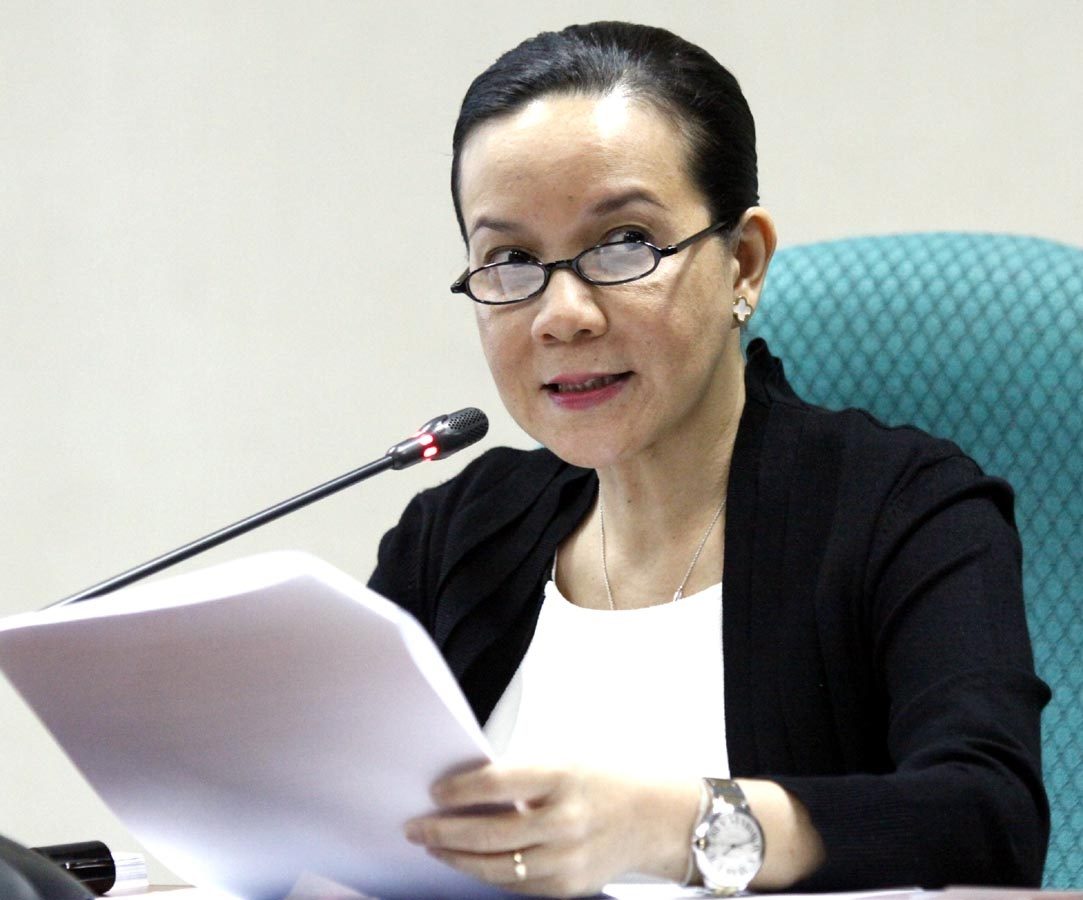SUMMARY
This is AI generated summarization, which may have errors. For context, always refer to the full article.

AT A GLANCE
- In 2013, the Senate Electoral Tribunal (SET) relaxed the rule on quo warranto petitions which now allows anyone to raise qualification issues and challenge a senator’s right to the post at any time during his or her term
- Poe has tapped a pool of lawyers to study the possible disqualification cases to be filed against her, either at the SET or the Comelec
- Poe’s frequent use of her US passport between 2005 and 2009 appears to negate an intent to stay in the Philippines during that time
- Citizenship, under the UN Convention relating to the status of Stateless Persons, is not automatically conferred, as stated under Article 32
MANILA, Philippines – In February 2013, or just a few months before the May midterm elections, the Senate Electoral Tribunal (SET) introduced an amendment in its rules that threw a monkey wrench into the plans of then candidate Grace Poe, who went on to top the senatorial race anyway.
Under the previous SET rules, an election protest must be filed within 15 days after the proclamation of the respondent senator, while a petition for quo warranto should be filed within 10 days after proclamation. A quo warranto petition, filed by any qualified voter, challenges the respondent’s right to the elective post on the grounds of ineligibilty, lack of qualification, or disloyalty to the State.
But the revised rules now say that if the grounds for ineligibility is due to questionable citizenship or the loss of the required qualifications, any registered voter can file a quo warranto petition “at any time during the respondent’s tenure.”
In other words, the deadline for the filing of quo warranto petitions on these two grounds has been lifted, allowing anyone to challenge the continued stay in office of a senator.
Consulting lawyers
Before the SET rules were revised, the members of the Senate Electoral Tribunal were Justices Antonio Carpio, Teresita Leonardo Castro and Arturo Brion, and senators Loren Legarda, Lito Lapid, Gregorio Honasan, Manny Villar, Pia Cayetano, and Francis Pangilinan.
Current SET members are Justices Carpio as chair, De Castro and Brion, and Senators Loren Legarda, Bam Aquino, Pia Cayetano, Cynthia Villar, Tito Sotto, and neophyte Nancy Binay.
Poe has hired a team of lawyers to study challenges that might be raised against her eligibility or qualification
Binay is the daughter of Vice President Jejomar Binay, who previously had been leading pre-election surveys until Poe overtook him in the latest one. Legarda, on the other hand, had topped the two previous Senate elections she participated in – in 1998 and 2007. She would have secured her own spot in history had she topped the 2013 senatorial race, except that Poe dislodged her from the number one spot.
Two years into her first term as lawmaker, the SET appeared to be a harmless body for Poe. After all, since she got proclaimed, no one has questioned her right to be in the Senate.
But two months ago, Poe started to take the SET seriously. Rappler learned she has hired a team of lawyers to study challenges that might be raised against her eligibility or qualification. The move came about the same time that rumors began to circulate that some political groups might question her qualifications to run for higher office. This also coincided with her surge in the surveys, placing a strong second then to Binay.
Poe is leaving no stone unturned in proving her qualifications. A SET source said Poe’s staff has consulted a retired SC justice, who is a former SET member, on the senator’s peculiar case.
Complicated status
Like her father, the late Fernando Poe Jr, Poe’s citizenship has been placed under a cloud of doubt owing to her status as a foundling, an abandoned child adopted by the movie icon and his wife, actress Susan Roces.
It is a sword of Damocles hanging over Poe’s head – her past threatening to ruin what the future has in store for her.
The camp of Binay was the first to open Poe’s own Pandora’s box, accusing the senator of failing to satisfy the constitutionally required 10-year residency for those seeking the presidency and the vice presidency.
United Nationalist Alliance president and Navotas Representative Toby Tiangco pointed out that Poe fails the 10-year requirement based on Poe’s own declaration in her certificate of candidacy (COC) when she ran in the Senate.

In her COC, Poe indicated that she would have been a resident in the Philippines for 6 years and 6 months by May 2013. By Tiangco’s reckoning, however, Poe would still be 6 months short of the 10-year requirement by May 2016.
Then there is the issue of her being a foundling which even got more complicated when she renounced her Filipino citizenship and acquired American citizenship. (READ: Foundlings are natural-born PH citizens-family law experts.)
Poe had acquired American citizenship during her stay in the US, but has yet to categorically state what year she assumed her new citizenship and renounced her Filipino citizenship.
Officially, she gave up her American citizenship in October 2010 before she accepted the post as MTRCB or Movie and Television Review and Classification Board chair. As for residency, Poe said she had been living in the country “since January or February 2005.” Some legal experts said Poe’s intent to stay should be the point of reckoning in counting the years for her residency.
The intent to return principle or “animus revertendi” was used as basis by the SC in 1995 in allowing former first lady Imelda Marcos to run for Congress as Leyte representative despite her long absence here.
But Poe’s repeated use of her US passport between 2005 to 2009 may negate Poe’s intent, according to an insider of the SC. Published reports said that Poe used her US passport from 2005 to December 2009 at least 21 times in entering and leaving the country. These repeated acts alone may weaken her defense of “animus revertendi” or intention to return to domicile.
“Besides, there was no question on Mrs Marcos’ citizenship, unlike in Poe’s case,” the SC insider said.
Maquiling vs Comelec
One SC ruling that can be instructive for Poe’s case is the Maquiling vs Comelec case that was decided in 2013. Penned by Chief Justice Maria Lourdes Sereno, the High Court disqualified Rommel Arnado as mayor of Kauswagan, Lanao del Norte after it concluded that Arnado had not effectively renounced his US citizenship by the time he ran for mayor.
A year before the elections in 2010, Arnado renounced his American citizenship and reassumed his Filipino citizenship. However, immigration records showed he continued to use his US passport until March 2010.
In disqualifying Arnado, the justices agreed with the Comelec that Arnado effectively recanted his oath of renunciation when he continued to use his US passport even after he has renounced his US citizenship.
“We agree with the Comelec en banc that such act of using a foreign passport does not divest Arnado of his Filipino citizenship…However by representing himself as an American citizen, Arnado voluntarily and effectively reverted to his earlier status as a dual citizen. Such reversion was not retroactive; it took place the instant Arnado represented himself as an American citizen by using his US passport,” the Court said in its ruling.
As the SC insider pointed out, Poe’s frequent use of her US passport between 2005 and 2009 negates her intent to return to the Philippines during those times. “What is clear is that she renounced her US citizenship in 2010 and was only approved by the US government in 2012.” – Rappler.com
READ: Part 2/Conclusion: Grace Poe and Pandora’s box: Legal issues also political
Add a comment
How does this make you feel?
There are no comments yet. Add your comment to start the conversation.